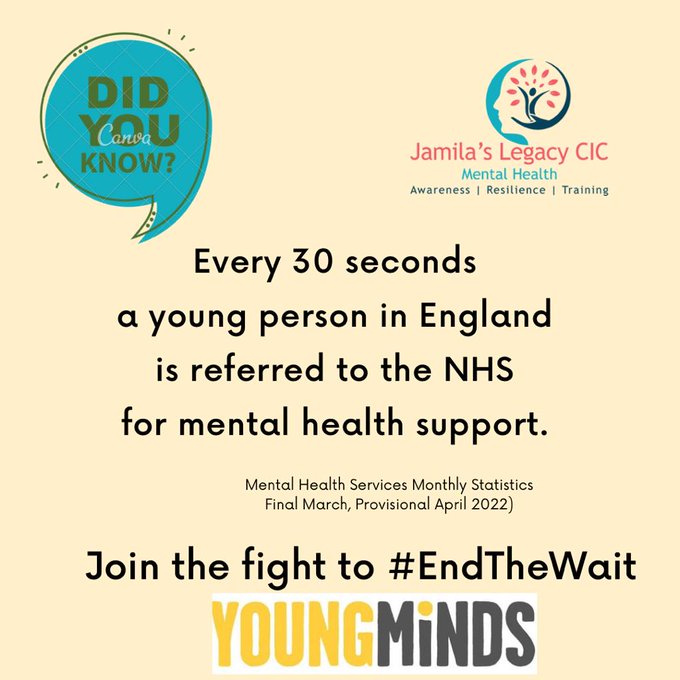The NHS waiting list for mental health services is now at 1.2 million people. Years of underfunding and escalating demand post-pandemic have seen the National Health Service powerless in getting a grip on a developing crisis. An ever-increasing number of children and young people, who desperately need help, are receiving medication because doctors have no treatment availability. New data shows that the NHS has missed multiple mental health targets. Demand is at an all-time high. In December 2021 alone, 1.8 million people availed of support, with the overall figure for 2021 a staggering 4.3 million, according to data released by the Royal College of Psychiatrists (RCPsych). Eating disorders, anxiety, depression, and addiction were chief among the causes.
The NHS waiting lists are growing to a crisis point. Targets such as making ‘talking therapy’ available to 1.6 million people have been missed. The impact of having to wait is disastrous, especially among children and teenagers. Charities, along with the Royal College of Psychiatrists, have again and again urged the government to provide additional funding. Speaking to The Independent, head of policy, campaigns and public affairs at the charity, Mind, Vicky Nash said:
“We are now seeing the cumulative result of years of underfunding combined with overwhelming demand for statutory mental health support, particularly off the back of the pandemic.”
In her view, the cost of living crisis will further impact the nation:
“The number of missed NHS mental health targets is the latest indication of how over-pressured and under-resourced our mental health services are right now. In addition, the cost of living crisis we’re facing will not only be hurting the nation’s wallets but negatively affecting our mental health too.
“Now more than ever, it is vital the UK government face the music and give mental health services the proper resources and support they need, starting by putting the long-awaited one-year cross-government mental health plan into place, alongside the funding our services need to bring down waiting times and support our country’s mental health.”
Apart from the 1.6 million people waiting on care according to NHS Providers figures, eight million people failed to meet the criteria to access support. Commenting on the NHS’ failure to deliver help to psychosis patients meeting quality standards, Rethink Mental Illness’ deputy chief, Brian Dow, said:
“We know NHS mental health services are facing record levels of demand and staff are working flat-out as a creaking social care system, in urgent need of funding, struggles to offer any meaningful support. The next government urgently needs to invest in mental health and social care services to help them both meet the surge in demand and ensure that the system works together to ensure progress on these targets doesn’t slip backwards.”
Over the next two years, the NHS will have £2.3 billion available to expand community care to nearly 400,000 people suffering from serious mental illnesses and provide care to an additional 345,000 young people and children.
Study shows thousands of young people on the waiting list attempted suicide
The impact of having to wait for care is disastrous, especially on young people. A study earlier this year concluded that the negative impact is multifold. While some participants “attempted to reflect upon their experiences in a constructive manner, this was not without criticism.” Waiting for treatment meant worsening mental and physical health.
Charity, YoungMinds, has warned that thousands of young people have tried to attempt suicide while on the waiting list. Out of the 14,000 young people and children the charity surveyed, over a quarter said that they tried to take their own life while trying to access help. More than half of the survey participants said that their health worsened, while 44 per cent revealed that they had to wait for more than one month. Nine per cent were turned away altogether.
NHS data showS a sharp rise in demand when comparing current rates with pre-pandemic levels. Up by 109 per cent from the same period before Covid, over 66,000 under 19s were referred to CAMHS.
During the same period, there was also a marked increase in the number of children and young people taking antidepressants. iNews reports that more than one in three teenagers received a prescription for antidepressants from their GP because of the unavailability of treatment options.
YoungMinds has launched the #EndTheWait campaign, urging the government to tackle the crisis among young people.
A government spokesperson said:
“Since 2018, we have seen an increase in NHS staff working in children and young people’s mental health and we are investing in mental health services so that nearly 350,000 more children and young people can access NHS mental health support in England by mid-2024.”
Rosena Allin-Khan, shadow minister told ITV:
“Our children’s futures can’t be put at risk because the government continues to ignore the rising demand for mental health services and the crisis in Child and Adolescent Mental Health Services.
“We know that early intervention is crucial to addressing mental illness in children, which is why, under the next Labour government, there will be access to a mental health professional in every school, and an open access hub in every community.”




